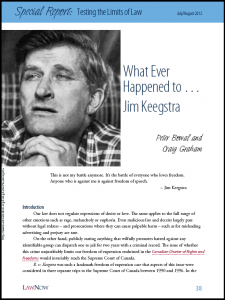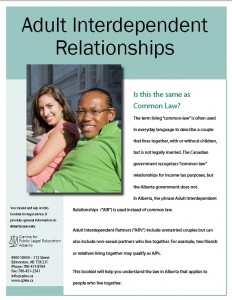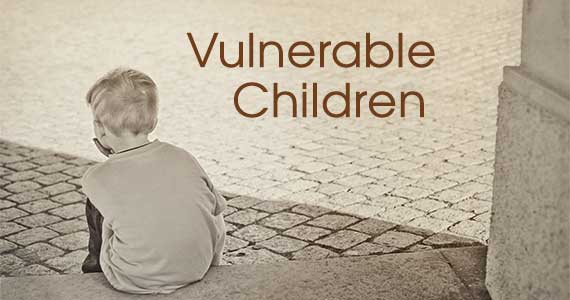CPLEA has a collection of new resources on employment law for youth in Alberta.
Funded by the Human Rights and Multiculturalism Fund, this project was created as a way to connect new Canadians with information about their rights at work.
This project was guided in part by our previous research on Law for Alberta’s Multicultural Communities.
We spoke with newcomer youth and agencies that work with them to find out what information about employment law the youth and their families need. In many newcomer families, children act as intermediaries to pass on information, including legal information. When youth learn about their rights and responsibilities, they are not only empowered themselves, they are also able to pass the information on t o other people in their families and communities.
o other people in their families and communities.
When talking with the youth we heard many different scenarios and most ended with the question “Can my boss do that?” The resources we created provide answers to that question.
A variety of formats, including infographics, videos, articles, and quizzes presents the information in interesting ways and allows us to reach people of different learning styles.
The collection of resources can be found on the CPLEA website: Your Rights at Work
LawNow 39-4: Vulnerable Children, Romance and the Law
Volume 39-4
Table of Contents
Featured Articles: Vulnerable Children
Special Report: Romance and the Law
Departments
Columns
Featured Articles: Vulnerable Children
All children are vulnerable; we know that. But some children face greater challenges than others, and the law can help these especially vulnerable little ones.
Age of Criminal Responsibility: An illusive dilemma
John Winterdyk
Different countries have different ideas about when children should face criminal responsibility for their actions. Where does Canada stand?
The International Charter on Prevention of Fetal Alcohol Spectrum Disorder
Egon Jonsson, Amy Salmon, and Kenneth R. Warren
The 2013 First International Conference on Prevention of FASD issued a Charter and a call for urgent action.
Aboriginal right – or wrong?
John Edmond
Two Aboriginal families in Ontario recently withdrew their children from chemotherapy. Should traditional Aboriginal medicine take precedence over western medicine?
Transgender Youth: Everyday Items, Everyday Rights
Melissa Luhtanen
The task of protecting transgender youth in schools has begun.
Mitigating Children’s Involvement in Maritime Piracy
Carl Conradi
Some 10 to 20% of pirates captured in the Indian Ocean are under 18. This poses huge legal, ethical and operational challenges.
One Edmonton Youth in Conflict with the Law: A Case Study
Stephanie Laskowski
An Alberta case of a “Mr. Big” operation where undercover officers coerced a murder confession from a youth demonstrates the risk of these tactics
Special Report: Romance and the Law
Wedding Law: By the Authority Vested in Me…
Peter Bowal and Alexandra Brunet
The authority to perform weddings may be civil or religious and the laws about marriages vary only in small ways across the country.
The Engagement Ring: Whose Property is it?
Juliana Ho
Sometimes, the bride and groom don’t make it to the altar, and property they acquired together may cause even more grief!
Married vs. Common Law: What’s the Difference Anyway?
Brad Taylor
As it turns out, there can be some significant differences when it comes to tax treatment!
Departments
Viewpoint
Ten Years – A Look Back At Bullying
Rob Frenette, O.N.B.
Columns
Human Rights Law
The Role of the Organization of American States in Canadian Human Rights Law
Linda McKay-Panos
Family Law
Unilateral Relocations – Don’t Do it!
Sarah Dargatz
Employment Law
Mandatory Retirement: Not so Fast!
Peter Bowal and Logan Melville
Aboriginal Law
The Best Interests of the Aboriginal Child
Troy Hunter
Not-For-Profit Law
Is it Time for Oversight of Social Investments?
Peter Broder
A Famous Case Revisited
When Free Trade is Not Free: the Abitibi Case
Peter Bowal and Christopher Tang
Law and Literature
The Contemporary Progressive Political Novel: The Rotter’s Club
Robert Normey
New resources on Family Law in Alberta
CPLEA has created new resources on Family Law in Alberta in partnership with the Edmonton Community Legal Centre.
The Edmonton Community Legal Centre offers free legal information sessions on Family Law. You can find the schedule at www.eclc.ca/information-sessions.html
The five booklets in the series provide practical legal information on Child Custody and Parenting, Financial Support, Property Division, Representing Yourself in Family Court, and Young Parents.
The booklets can be downloaded for free at www.cplea.ca/store
Child Custody and Parenting
This booklet explains the law and parenting in Alberta.
It has information about custody and guardianship, parenting plans, how to make agreements with the other parent, common problems and suggestions on how to resolve them.
Financial Support
This booklet explains the law and financial support when a relationship ends in Alberta.
It has information for people who were legally married and people who lived in a common law relationship.
Property Division
This booklet explains the law and property division when a relationship ends in Alberta.
It has information for people who were legally married and people who lived in a common law relationship.
Representing Yourself in Family Court
This booklet explains how the legal process works in Alberta.
It has information for people who were legally married and people who lived in a common law relationship.
Young Parents
This booklet explains the law for young parents.
It has information about pregnancy, adoption, guardianship, living together, getting married, living apart and child support
Thank you to the family law legal service providers who reviewed the booklets and provided valuable feedback.
We gratefully acknowledge the Alberta Law Foundation for the funding that made this project possible.
Changes to the Youth Criminal Justice Act
Amendments to the Youth Criminal Justice Act (YCJA) recently came into force. CPLEA has updated our Canadian Legal FAQs website to reflect these changes.
A package of new YCJA resources has also been created. The package includes a poster , a lesson plan for teachers and the video below:
Mobile Phone Searches at School
Before I worked at CPLEA as a Program Coordinator I was a teacher. The school I taught in had a strict mobile phone policy. If a student was caught with their phone in class they would have it confiscated. The student would then have to pick up their phone at the end of the day from the Principal’s office.
I was talking to a former teaching colleague about an Edmonton school that went a step further and searched the contents of a student’s phone. My friend wondered if this violated the rights of the student.
Section 8 of the Charter of Rights and Freedoms ensures that everyone has the right to be secure against unreasonable search and seizure (which means that everyone has a right to expect a reasonable amount of privacy). Those that act on the behalf of the government, such as police officers, must act in a fair and reasonable way and usually need a search warrant to do a search.
In schools, the guidelines regarding privacy are a little less strict, as teachers and principals are responsible for student safety. Students are aware that they must comply with school regulations and as a result that they may be subject to searches.
It is sometimes appropriate for teachers and principals to search student property such as backpacks and lockers. Before the search, however, questions such as the following must be considered.
- Is there enough proof to justify the search?
- Is the search reasonable?
- Is the search carried out in a reasonable manner?
CPLEA created a series of lesson plans for schools about the Charter called You Decide: Charter Challenges. The teacher backgrounder that accompanies the lesson plans is an interesting read with more information about Charter rights in schools.
How to Find Good Legal Information Online
From time to time people call us looking for help finding legal information. Recently I spoke to a woman about an issue she was having with a tenant. We conversed for awhile before I realized that she was calling from Florida. Yikes! We provide Canadian legal information. She’s living under a whole different set of laws and a very different legal system. Her internet search had led her to us and she didn’t even realize that she was calling Canada. That’s the problem with the internet. Good information is available, but you have to be on your toes to check if it is relevant and accurate for your situation.
Teachers Talk LawNow – Jim Keegstra
LawNow magazine is an incredible resource for teachers. Each issue offers engaging articles about law in language suitable for students. Teachers Talk LawNow is a series of lesson plans for teachers based on these articles.

“R. v. Keegstra was such a landmark freedom of expression case that aspects of this issue were considered in three separate trips to the Supreme Court of Canada between 1990 and 1996.”
This LawNow article is available to download in the July/August 2012 issue of LawNow magazine :
- What Ever Happened to … Jim Keegstra – Peter Bowal and Craig Graham
This weeks blog shifts out of the classroom and into the staff room. Jim Keegstra was a teacher from Eckville, Alberta. For years he had been teaching students his own brand of history that included Jewish conspiracies and other anti-Semitic content. Eventually he was charged with criminally promoting hatred against an identifiable group.
Many recently graduated teachers studied this case in University and older teachers will remember the news coverage. Leave this article on a coffee table in the staff room and see what discussions it creates. Some discussion points to get your started are:
- How could Keegstra teach his opinions for so long and could something like this happen today?
- What limits should there be on “free speech”?
- If Keegstra had kept his opinions out of the classroom, but still made them public, should he have kept his job?
New Adult Interdependent Relationships Brochure
The term living “common-law” is often used in everyday language to describe a couple that lives together, with or without children, but is not legally married. The Canadian government recognizes “common law” relationships for income tax purposes, but the Alberta government does not. In Alberta, the phrase Adult Interdependent Relationships (“AIRs”) is used instead of common law.
AIRs are interesting because they can include non-sexual relationships of interdependence. For example two friends or relatives that live together may be considered to be in an AIR if they meet certain criteria.
CPLEA has made a new brochure about AIRs. This brochure answers some of the most common questions people have and provides examples of what AIRs look like. Check it out here

Rules for Smart Renters
When I first started working at CPLEA I was given the task of finding out what youth need to know about the law. After consulting with youth in our city and the groups that work with them, we came across a serious problem. Young people, especially those in vulnerable situations, are being taken advantage of. Youth often do not know their legal rights and responsibilities when renting.
Finding a safe place to live is one of the biggest challenges facing youth who have moved out of their homes because of abuse, neglect, or being kicked out.
At CPLEA we have created a video with some basic tips to help renters. It is a great resource for young people and anyone else that rents. The video focuses on ways to prevent things from going wrong and how to have a positive relationship with your landlord.
Top 5 Tips for Bringing Law into the Classroom
CPLEA has its own youtube channel! You can view it here. Our first videos posted are tips for teachers to bring law into the classroom. Watch all 5 tips below.
Stay tuned for more Vlogging (Video Blogging).
